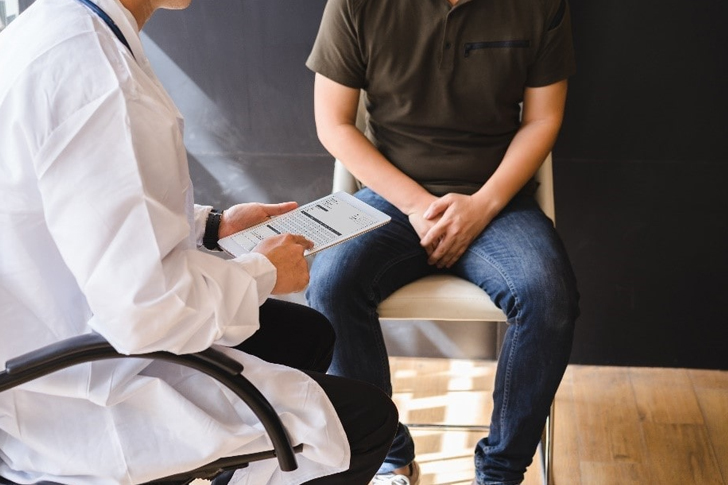Alternative Treatment Methods for Erectile Dysfunction
Erectile dysfunction (ED) is a medical condition that affects millions of men around the world. According to the Massachusetts Male Aging Study, about 52% of men face some degree of erectile dysfunction. ED is characterized by the difficulty to achieve or maintain an erection sufficient for satisfactory sexual performance. While medications like sildenafil (Viagra) and tadalafil (Cialis) are widely known, they do not work for everyone and can have side effects. Consequently, there is growing interest in alternative treatment methods for managing this condition. This article explores several less conventional approaches that have been studied for their effectiveness and safety in treating ED.

1. Lifestyle Modifications
Lifestyle changes can have a significant impact on erectile function. Regular exercise, a balanced diet, quitting smoking, and reducing alcohol intake can all help improve erectile dysfunction. A study published in the Journal of Sexual Medicine found that men who adhered to a Mediterranean diet, which is high in fruits, vegetables, whole grains, and heart-healthy fats, had noticeably better erectile function. Additionally, a 2013 study in the British Journal of Sports Medicine reported that physical activity, particularly aerobic exercise, is effective in improving ED in obese and overweight men, and even has benefits similar to taking medications for mild to moderate ED.
2. Acupuncture
Acupuncture, a traditional Chinese medicine technique that involves inserting fine needles into specific points on the body, has been explored as a treatment for erectile dysfunction. A review of studies, which included randomized controlled trials, found that acupuncture may have a beneficial effect on ED, particularly if it has a psychological origin. However, more high-quality studies are needed to confirm these findings and to better understand how acupuncture might work to improve ED.
3. Herbal and Natural Supplements
Numerous herbs and supplements have been proposed as natural remedies for ED. Some of the most commonly cited are ginseng, L-arginine, and yohimbine. A systematic review published in the Journal of Sexual Medicine found moderate evidence supporting the use of Korean red ginseng in the treatment of erectile dysfunction; however, more comprehensive, high-quality studies are needed to further substantiate these findings. L-arginine, an amino acid that boosts nitric oxide levels in the body, has mixed results in studies but could have a synergistic effect when used with other treatments like pycnogenol. Caution is advised when considering these supplements because their purity and effectiveness can vary, and they can interact with other medications.
4. Psychological Counseling
Since psychological factors such as stress, anxiety, and depression can contribute significantly to erectile dysfunction, psychological counseling can be an essential part of a comprehensive treatment plan. Therapy can help address these root causes and improve ED. Cognitive-behavioral therapy and couples’ therapy have both been shown to have positive effects on erectile dysfunction, especially when ED is caused by psychological factors.
5. Vascular Surgery
In cases where erectile dysfunction is caused by vascular issues such as blocked arteries, vascular surgery may be an option. This procedure involves bypassing or reconstructing arteries to increase blood flow to the penis. According to a report in the Journal of Vascular Surgery, microsurgical arterial bypass surgery has shown success rates ranging from 30% to 50% in young patients who do not have widespread vascular disease. However, this is a significant procedure with potential risks and is usually considered only for younger men with localized artery blockage.
6. Shockwave Therapy
Low-intensity shockwave therapy is a relatively new treatment for erectile dysfunction that uses energy from acoustic waves to stimulate blood flow in the penis, promoting the repair and growth of blood vessels. Clinical trials, including a study published by Therapeutic Advances in Urology, have shown promising results, with improvements in erectile function without significant side effects. Further studies are underway to validate the long-term effectiveness and safety of this treatment.
Conclusion
Erectile dysfunction is a complex condition influenced by a variety of factors, including physical health, psychological conditions, and lifestyle choices. While traditional medications remain a popular and effective treatment option, alternative treatments such as lifestyle changes, acupuncture, herbal supplements, psychological counseling, and new medical interventions offer potential benefits. Men considering alternative treatments for ED should consult with their healthcare provider to ensure that these methods are suitable for their specific health needs and to understand the potential risks and benefits involved.
The exploration of alternative treatment methods for erectile dysfunction is ongoing. Each option carries its own set of potential benefits and risks, making it crucial for individuals to make decisions in close consultation with healthcare professionals. As research progresses, it is likely that new and improved treatments will continue to emerge, contributing to better management and understanding of this widespread health issue.







Recent Comments